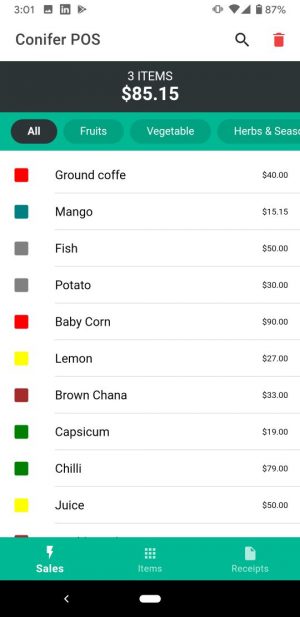As the popularity of Electron.js continues to grow, developers are increasingly turning to this framework for building desktop applications. However, with the increasing complexity of these applications, debugging and testing becomes more challenging. In this article, we will explore some tips and tools that can help developers debug and test their Electron.js applications more efficiently.
1. Introduction
Electron.js is a popular framework for building desktop applications using web technologies such as HTML, CSS, and JavaScript. However, with the increasing complexity of these applications, debugging and testing becomes more challenging. As developers, we need to ensure that our applications are reliable and bug-free. In this article, we will explore some tips and tools that can help us debug and test our Electron.js applications more efficiently.
2. Debugging Electron.js Applications
Debugging is the process of finding and fixing errors in our code. Electron.js applications can be divided into two processes: the main process and the renderer process.
Debugging Main and Renderer Processes
The main process is responsible for managing the application’s lifecycle and creating browser windows. The renderer process is responsible for rendering the content in the browser windows. Debugging these two processes requires different tools.
For debugging the main process, we can use the Node.js debugger. We can start the application with the --inspect flag and attach the debugger to the process. This allows us to set breakpoints and step through the code.
For debugging the renderer process, we can use the Chrome DevTools. We can launch the DevTools by pressing Ctrl+Shift+I on Windows or Cmd+Option+I on Mac. This allows us to inspect the DOM, view console messages, and set breakpoints.
Using Chrome DevTools
Chrome DevTools is a powerful tool for debugging web applications. In Electron.js, we can use DevTools to debug the renderer process. Some of the features that are particularly useful for Electron.js applications include:
- Inspecting the DOM: We can use the Elements tab to inspect the HTML and CSS of our application.
- Debugging JavaScript: We can use the Sources tab to set breakpoints and step through our JavaScript code.
- Viewing console messages: We can use the Console tab to view console messages from our application.
- Debugging Node.js: We can use the Node.js debugger in DevTools to debug the main process of our Electron.js application.
3. Testing Electron.js Applications
Testing is the process of verifying that our code behaves as expected. Electron.js applications can be tested at different levels: unit testing, integration testing, and end-to-end testing.
Unit Testing
Unit testing is the process of testing individual units of code in isolation. In Electron.js, we can use frameworks such as Mocha and Chai to write unit tests for our code. Unit tests should be fast and focused on a specific piece of functionality.
Integration Testing
Integration testing is the process of testing how different units of code work together. In Electron.js, we can use frameworks such as Spectron to write integration tests for our application. Integration tests should test the interaction between different components of our application.
End-to-End Testing
End-to-end testing is the process of testing the entire application from start to finish. In Electron.js, we can use frameworks such as Spectron or WebDriverIO to write end-to-end tests for our application. End-to-end tests should simulate real user interactions and test the application in its entirety.
4. Debugging and Testing Tools for Electron.js
In addition to using the tools provided by Electron.js and Chrome DevTools, there are also a number of third-party tools that can help with debugging and testing Electron.js applications.
Spectron
Spectron is an end-to-end testing framework for Electron.js applications. It uses WebDriverIO to interact with the application and can be used to write tests in a number of different languages including JavaScript, Python, and Ruby.
Chai
Chai is an assertion library for JavaScript that can be used with testing frameworks like Mocha and Spectron. It provides a number of different assertion styles including should, expect, and assert, making it easy to write readable and expressive tests.
Mocha
Mocha is a testing framework for JavaScript that can be used with both Node.js and Electron.js applications. It provides a simple and flexible API for writing tests and supports both synchronous and asynchronous testing.
Sinon
Sinon is a JavaScript library for creating mock objects and stubs. It can be used with testing frameworks like Mocha and Chai to create test doubles for our application’s dependencies, making it easier to write isolated unit tests.
Ava
Ava is a testing framework for JavaScript that is designed to run tests in parallel. It provides a concise and easy-to-use API for writing tests and supports both synchronous and asynchronous testing.
5. Best Practices for Debugging and Testing Electron.js Applications
Here are some best practices that can help with debugging and testing Electron.js applications:
- Use console.log() to output debugging information to the console.
- Write tests for all of your code, including the main process and the renderer process.
- Use a combination of unit, integration, and end-to-end tests to ensure that your application works as expected.
- Use descriptive and meaningful test names to make it easy to understand what each test is doing.
- Use a continuous integration (CI) system to automatically run your tests whenever code changes are made.
6. Conclusion
Debugging and testing Electron.js applications is an important part of the development process. By using the tips and tools outlined in this article, you can make the debugging and testing process more efficient and effective. Remember to write tests for all of your code and to use a combination of unit, integration, and end-to-end tests to ensure that your application works as expected.
7. FAQs
What is Electron.js?
Electron.js is a framework that allows developers to create cross-platform desktop applications using web technologies such as HTML, CSS, and JavaScript.
What is debugging?
Debugging is the process of finding and fixing errors or bugs in software.
What is testing?
Testing is the process of evaluating the functionality of a software application to ensure that it meets the requirements and specifications.
What is the difference between unit testing, integration testing, and end-to-end testing?
Unit testing is the process of testing individual units or components of the application in isolation. Integration testing is the process of testing how multiple components of the application work together. End-to-end testing is the process of testing the entire application from start to finish, simulating real user interactions.
What are some best practices for debugging and testing Electron.js applications?
Some best practices for debugging and testing Electron.js applications include writing tests for all of your code, using a combination of unit, integration, and end-to-end tests, using descriptive and meaningful test names, and using a continuous integration (CI) system to automatically run your tests whenever code changes are made. It is also important to use console.log() to output debugging information to the console and to ensure that your tests cover both the main process and the renderer process.





